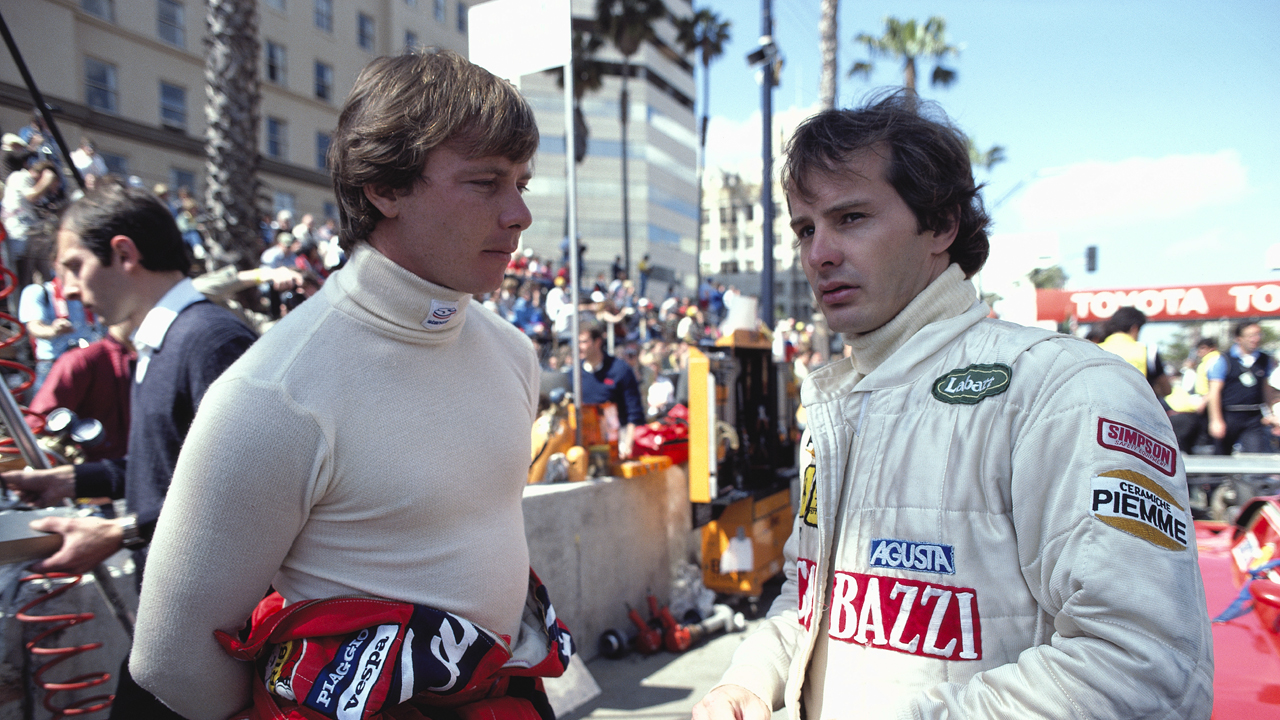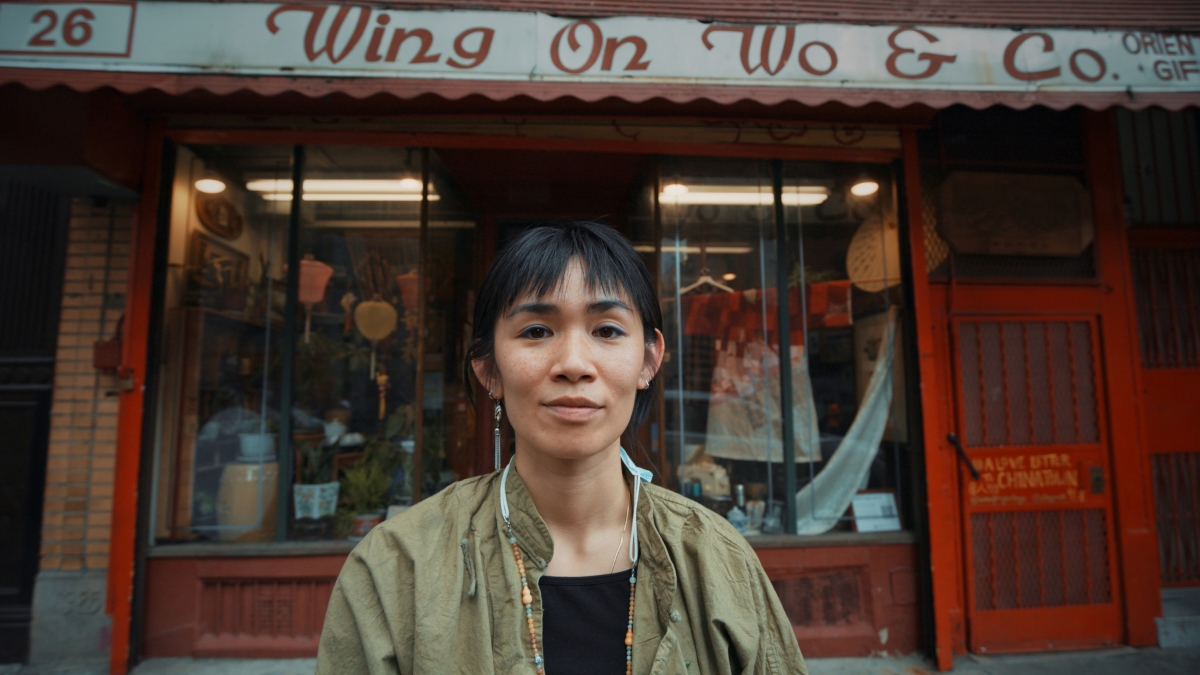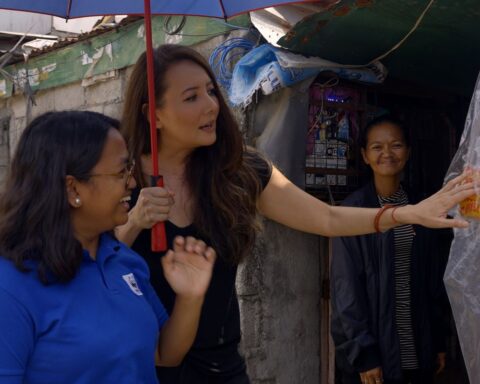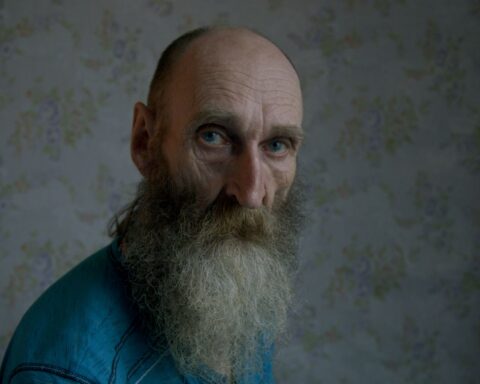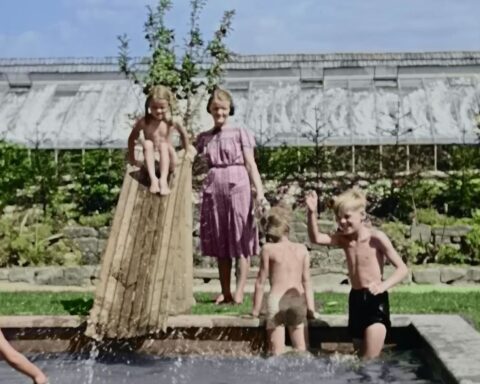For Formula 1 fans from all over the world, but particularly in his native Quebec, the legend of Gilles Villeneuve continues to resonate. Even decades after his death at Zolder in 1982 during an uncharacteristically chaotic practice session, Villeneuve remains a racing titan. The Canadian driver, who was adored like a son by the notoriously guarded Enzo Ferrari, scion of the storied marque, endures as a skilled motorist destined to be a champion. From humble beginnings to the top of the world’s stage, the magnitude of his tenure in racing cannot be overestimated.
Didier Pironi, meanwhile, has been little more than a footnote. Villeneuve’s teammate exhibited behaviour that many onlookers considered downright duplicitous. Some insiders go further and intimate that Pironi who was directly responsible for the lapse in judgement that caused Gilles’ demise.
In Villeneuve Pironi, which premiered at DOC NYC on November 12, director Torquil Jones and his collaborators go beyond the broad strokes of a typical sports doc. Villeneuve Pironi dives into each individual’s remarkable story, using the reflections of those who knew the men best to tell the tale. What’s remarkable is that this is by no means a two dimensional, hagiographic telling, with even family members recognizing the contradictions of each man that drove them to success and, eventually, their shared fate.
We spoke to Jones prior to the film’s screening at DOC NYC.
POV: Jason Gorber
TJ: Torquil Jones
POV: What led you to focus on this particular era of Formula 1 history?
TJ: I was introduced to the story of Villenueve and Pironi about five or six years ago. I’m a casual motorsport fan, but I don’t know a huge amount of F1’s history. Basically, someone approached our production company with the idea for a Gilles Villeneuve biopic documentary, and we looked into the story. Gilles is an absolutely incredible, iconic F1 racer, with an amazing story. But the more we looked into it, the more we were drawn as well to this figure of Didier Pironi, his rival for a very short period of time at Ferrari in 1982. We thought, as a double header, that it would be a fascinating challenge to interweave their life stories. We chose to focus on this infamous 1982 season that was wrapped up in so much tragedy and violence, one that has gone down among the most infamous seasons in the history of the sport.
Once we made the decision about five years ago to do it as a double header, between Pironi and Villeneuve, our producer on the film, John McKenna, worked tirelessly to bring the stories together. That was obviously the key thing for us. When I first heard about the story, I couldn’t believe it hadn’t been done before! There’s been a lot of F1 stories over the years, but this felt like it had everything you’d want from a universal human drama with Formula 1 being the backstory.
John spent about three or four years talking with both families through the process and explaining what we were trying to achieve, and they eventually came to the table. We started production a couple of years ago which is when I came on to the project. The last couple of years for me have been spent working to bring the families’ perspective, particularly the widows and the wives’ perspective because I was keen for this to be a female-led story with a feminine perspective on what is a very macho, male sport. Alongside that, it was important to bring in key interviewees from that season that were based within the Ferrari team at different levels, and then the kind of wider context from the F1 stars of that era and previous eras such as Alain Prost and Sir Jackie Stewart to give context as to why that season was so incredible.
POV: It is clear from the opening 30 seconds, where you have voiceover in which Villeneuve’s wife Joann says this is a complicated story, that this is no easy narrative. How challenging was it to make sure that you were threading that balance between mythmaking and reality to portray these individuals as complex human beings?
TJ: From the outset, we said to both families that editorial control lies with us. We pledged that we were going to have to explore aspects of both men, and some of that would be uncomfortable for the families. That was the prerequisite. Otherwise, we wouldn’t have gotten involved in the project. Senna is an incredible film, but it sometimes portrays him in quite a one-dimensional way. I think about how this story’s been viewed in the past. In a lot of the books and the articles I’ve read, Gilles Villeneuve is the hero and Didier Pironi is the villain. Didier Pironi is obviously not a villain, as you say. He’s a three dimensional character, and he has complexities and flaws. But when you speak to the people who were close to him, they obviously loved him. I wanted to push both men forward as they have incredible sides to their personalities.
Gilles, meanwhile, is adored within motorsport today. When it came to the Jacques Villeneuve interview [Gilles’ son], he was very honest, and I know he’s talked about some of this stuff before. Gilles, through his pure passion for the sport, committed his entire life to it. The impact of that on Jacques is that he was absent for periods. But, obviously, he was very significant for Jacques’s upbringing and his character today. I wanted to portray both Villeneuve and Pironi as rich characters who have their strengths, their weaknesses, and their flaws.
POV: Villeneuve died in part because of his immaturity within the system, his irrational or naïve belief that a teammate would not do something for their own self-interest. On the other hand, you have Pironi who gets killed because he goes into another sport [powerboat racing] in which he thinks he has a level of competence. He treats it like he treats racing and dies going over the limit. It surely was a challenge not to minimize the successes each man had without focusing on their fatal mistakes.
TJ: In terms of Gilles’ death, I’d obviously read a lot about it. Alain Prost sat in his car behind Villeneuve when he went out for the final time, and Prost said even from his cockpit he could just see that Gilles wasn’t himself. You can see that from the archive footage—in those shots of him in the cockpit before he goes out. You can clearly see he’s agitated. Those images have only recently been digitized onto Formula 1’s system, so they haven’t really been seen before. There’s a direct link between what happened at Imola, the two weeks that preceded it, and that kind of festering animosity that was building up. Everyone I spoke to who was there said that Gilles was acting very differently to his normal persona, which was usually very relaxed, quite carefree. So that edit didn’t change from the first cut.
POV: Pironi’s death is even harder to navigate, given that not only was it in another sport, but it occurred with two other members of his team also losing their life on what seems to have been a very poor calculation by someone clearly over the limit of their skills.
TJ: Another challenge in telling the story of Pironi’s death was that it wasn’t filmed. We had to use a combination of archive and then some abstract reconstruction. There was a longer cut of that, which talked about the two guys who were in the boat with him. What it boiled down to was that they knew exactly what they were doing and the risks involved. They raced with Pironi on a number of occasions. There was too much detail to cover in the film, but the way those boats were set up was that one person was doing the steering, one person was doing the throttle, and one person was doing the navigating, so it was quite complicated to explain an entirely different sport. But there’s no doubt that Didier was the lead pilot, he was making the calls.
In the end, I felt the strongest version of it was [achieved by] honing in on Didier’s philosophy. You see from interviews from when he’s 18, 19, that he absolute hates coming in second place. He has to win. He was quite ruthless in that sense, with a competitive edge that made him a great racer. I think that directly goes back to what transpired at Imola, which forms the central conflict of the film. I don’t think Pironi was expected to be in that situation where he was leading the race, but once he was there, there was no way he was going to give it up.
POV: Since Senna and the explosion of interest thanks to Netflix’s Drive to Survive along and Liberty Media’s purchase of F1, there seems to be a push to honour the vast archive of the sport. What were the steps in finding this footage?
TJ: I did the archive search from the beginning, before we started filming and before we started editing. I had a team of three archive producers, one was based in the UK, one was based in the US, and one based in Italy. They spent six months doing a first trawl of what’s out there. The major issue with this particular story was that Formula 1 owns the archive from the start of the 1981 season up until today. Before that, the rights become very complicated [and] from a variety of sources.
Just to use one example, the 1976 Gilles Villeneuve footage from the Formula Atlantic days, was from a production company based in Canada. The film rushes were in [Library and Archives Canada] and hadn’t been digitized before. All of that footage of Gilles and the family around ’76, that’s never been seen before. It hadn’t even been processed. There are a number of big wins like that for us where you see the footage and you’re like, “I know this is from 1976, but we have to use it throughout the film because it exemplifies the Gilles magic. It shows the family dynamics.” It’s fantastic.
Then, obviously, you start to collate a chronology of that archive. As you say, there are black holes and there are specific scenes, which you don’t have filmed. There’s quite a lot of reconstruction in the film, but it’s not reconstruction with a “Gilles actor” and a “Didier actor” literally reenacting scenes. I was keen to make it more point of view based, so we were trying to get into the minds of Didier and Gilles at that specific point. We do the same with some of the interviews, getting into the mind of Jacques Villeneuve, for example, when he’s talking about his father. We used specific filters on the lenses, and used specific ways of filming so that it gives these archival elements an abstract, dream-like look.
I was keen to put forward these elements because a lot of the film is narrated by Joann Villeneuve, Catherine Goux, and Catherine Beynie Larson, so the language they use is different. I feel the result is different to other motorsport and sporting documentaries. It’s less factual and more emotional when it’s more fundamental. I was keen to marry that with footage that you wouldn’t necessarily expect, and also footage that clearly wasn’t motorsport. So there’s quite a lot of abstract photography in the film, whether it’s trees or sunlight or leaves
POV: What has the reaction been from those that knew Villeneuve, from the built-in audience, and from those who don’t give a damn about Formula 1 but find this incredibly human story?
TJ: To be honest, the pool of people we’ve shown it to has been quite small. We showed it to obviously both families, and there were some challenging conversations. There are parts of the story which, as we said from the beginning, they found uncomfortable.
We’d built up such a good relationship with them over the last few years that there was that trust there that was really important. I’ve shown the film to a few F1 experts and the reaction’s been positive. I think there are particularly aspects of Gilles’ character that people weren’t necessarily aware of before. As for Didier Pironi, he’s been portrayed as a very one-dimensional, villainous character for 40 years now. I think getting access to his character via his loved ones, and via new archive, celebrates in part what an amazing driver he was.
I think those new aspects have been great, but as you say, we always wanted this to go to a broader audience because, in the small F1 world, people know the story, or they know parts of the story. The reason I got involved from the beginning was it’s a human drama, it’s about friendship, it’s about relationships, it’s about betrayal of trust. It’s about how we remember those that have passed, the legacy they leave, and how people live in the shadow of people’s legacies.




